Conservation in South Africa is risky business. Particularly when it comes to poaching. Over the past two decades, we have witnessed an intensified effort on both sides. On the one hand, we have underground crime syndicates becoming far more sophisticated in their operations. And on the other hand, we have improved anti-poaching systems on the ground to combat what is undoubtedly the biggest threat to wildlife conservation in South Africa.
As a result of these intensified efforts, the war against poaching has taken on a very military-esque façade which has just made the risky business of conservation even more dangerous. Humans on the frontline and those living in neighboring communities to endangered wildlife are all at risk of being caught in a conservation crossfire.
Instead of treating the symptoms, a systemic change is needed. A solution that changes the fundamental way the system works.
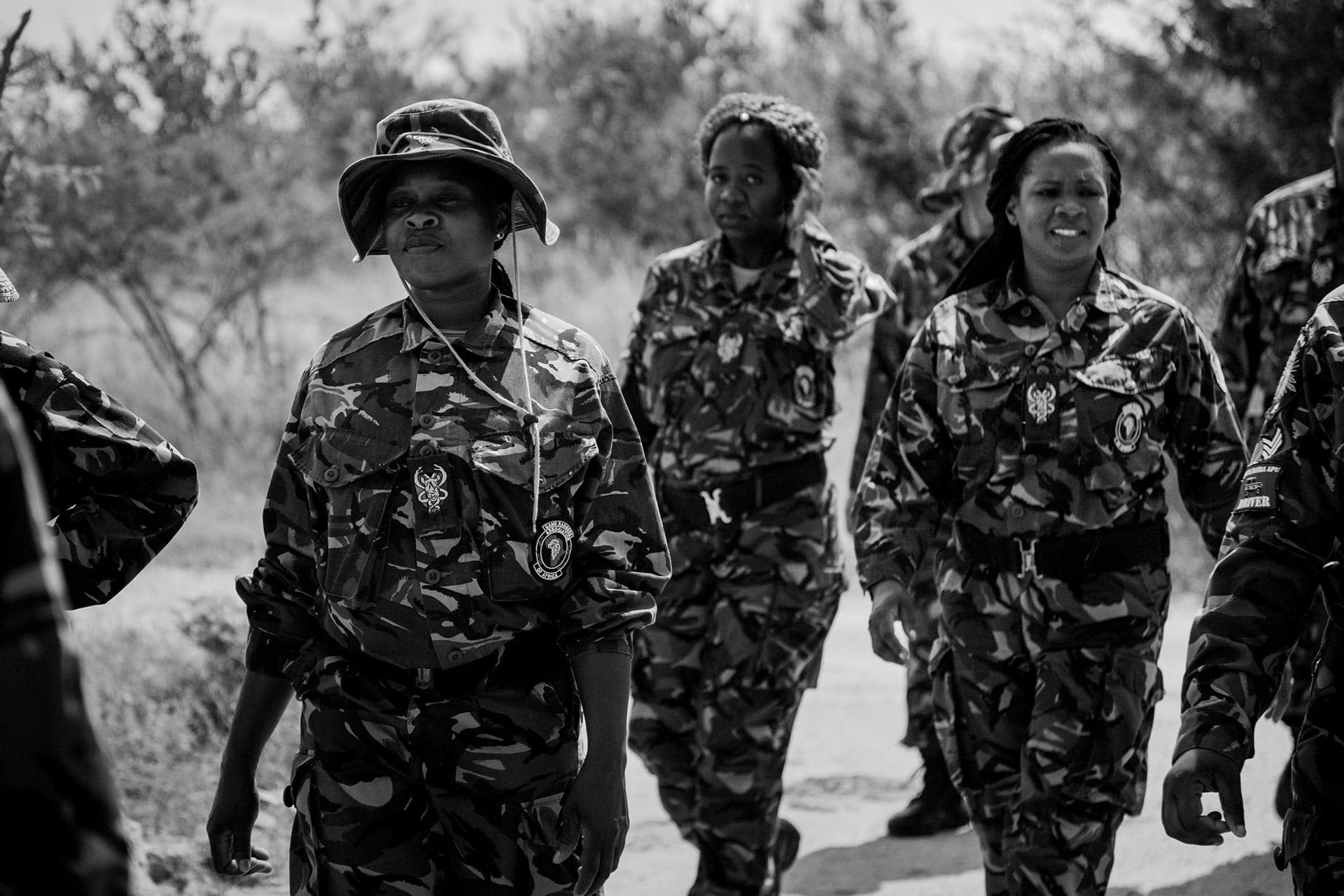
“It was clear from the start that poaching was not going to be won with bullets and helicopters. We needed a multi-pronged strategy that would ensure a long-term legacy on the ground,” says Craig Spencer, founder of the Black Mambas – the world’s first ever all-female anti-poaching unit, tackling one of Africa’s most severe conservation crises.
“Poaching is not new to wildlife and reserves, and we keep approaching it with the same old strategies that include pursuit, apprehension and prosecution. This does not make the problem go away.”
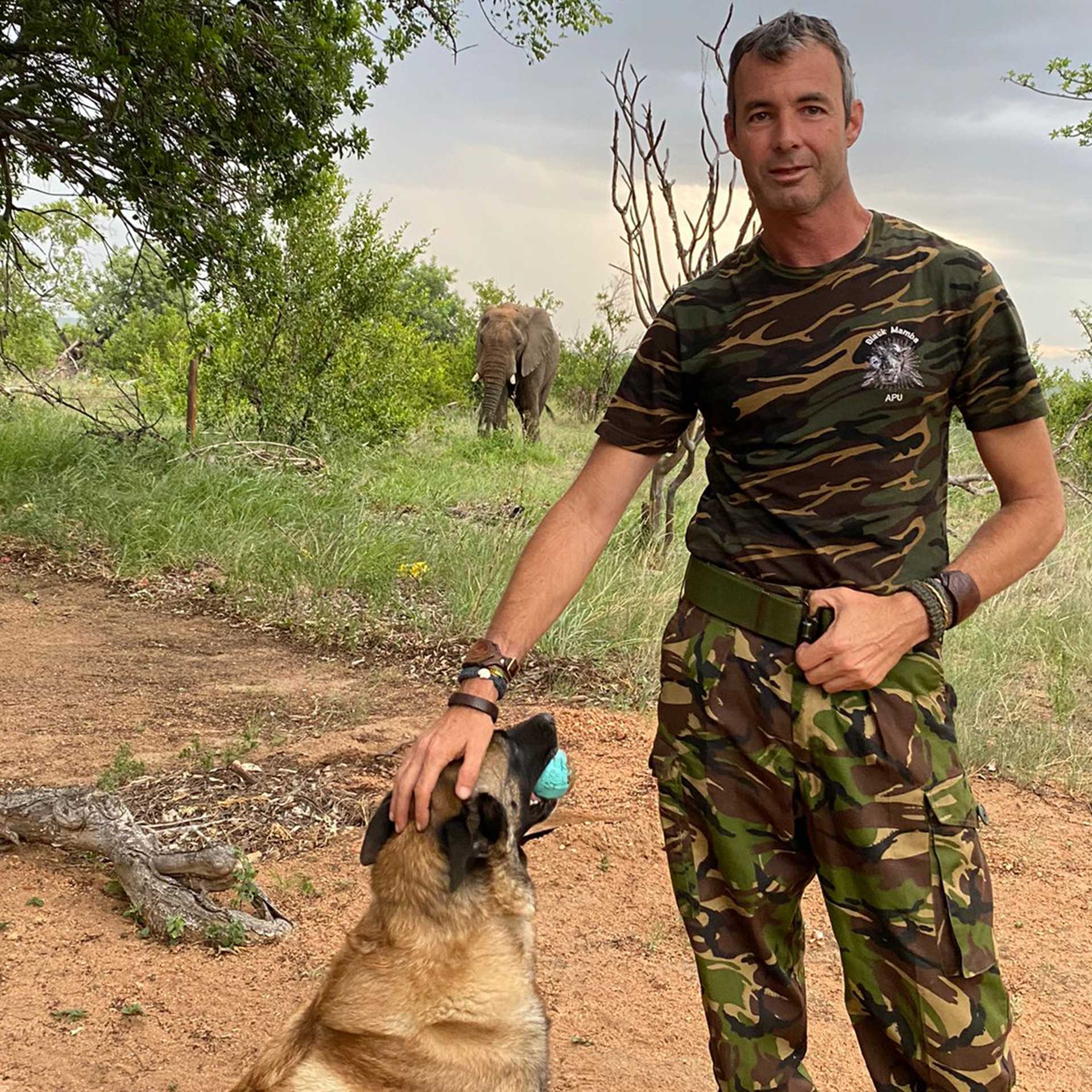
After a near-fatal encounter with a black widow spider who saw him exonerated from the army, Craig Spencer pursued his studies in ecology and anthropology. His passion for conservation management led him to the Overberg – a region in South Africa that is considered one of the world’s seven biodiversity hotspots. It is also, sadly, one of the world’s most threatened ecosystems, plagued by poaching. He became embroiled in a militarized anti-poaching role for eight years before moving to the Greater Kruger and his current role as Head Warden for Balule Nature Reserve. Here, he is in charge of initiating various wildlife security protocols, particularly for the preservation of the region’s rhino population.
Having had first-hand experience in the fight against poaching, Craig took his experience and decided to develop a new strategy. It was a strategy that would work towards developing long-term intervention within the communities. A strategy that would provide a long-term solution against poaching. And a strategy that would embed a deep conservation philosophy into the future generations of the land.
The strategy was the Black Mambas – an idea that was sparked around a fire in Craig’s small bush camp one night in 2012.
Since then, the Black Mamba Anti-Poaching Unit has gone on to smash the glass ceiling in the conservation arena, even winning the revered Champions of the Earth award – the United Nations’ highest environmental honor.
Our new Legacy Partner, we have joined forces with the Black Mamba Anti-Poaching Unit in an effort to further our responsible travel offering and help our clients leave a positive legacy in Africa. For each trip booked with Ker & Downey® Africa, our clients can choose to donate $100 to the Black Mambas, as well as their community program The Bush Babies.
We caught up with Craig to find out more about the Black Mamba Anti-Poaching Unit:
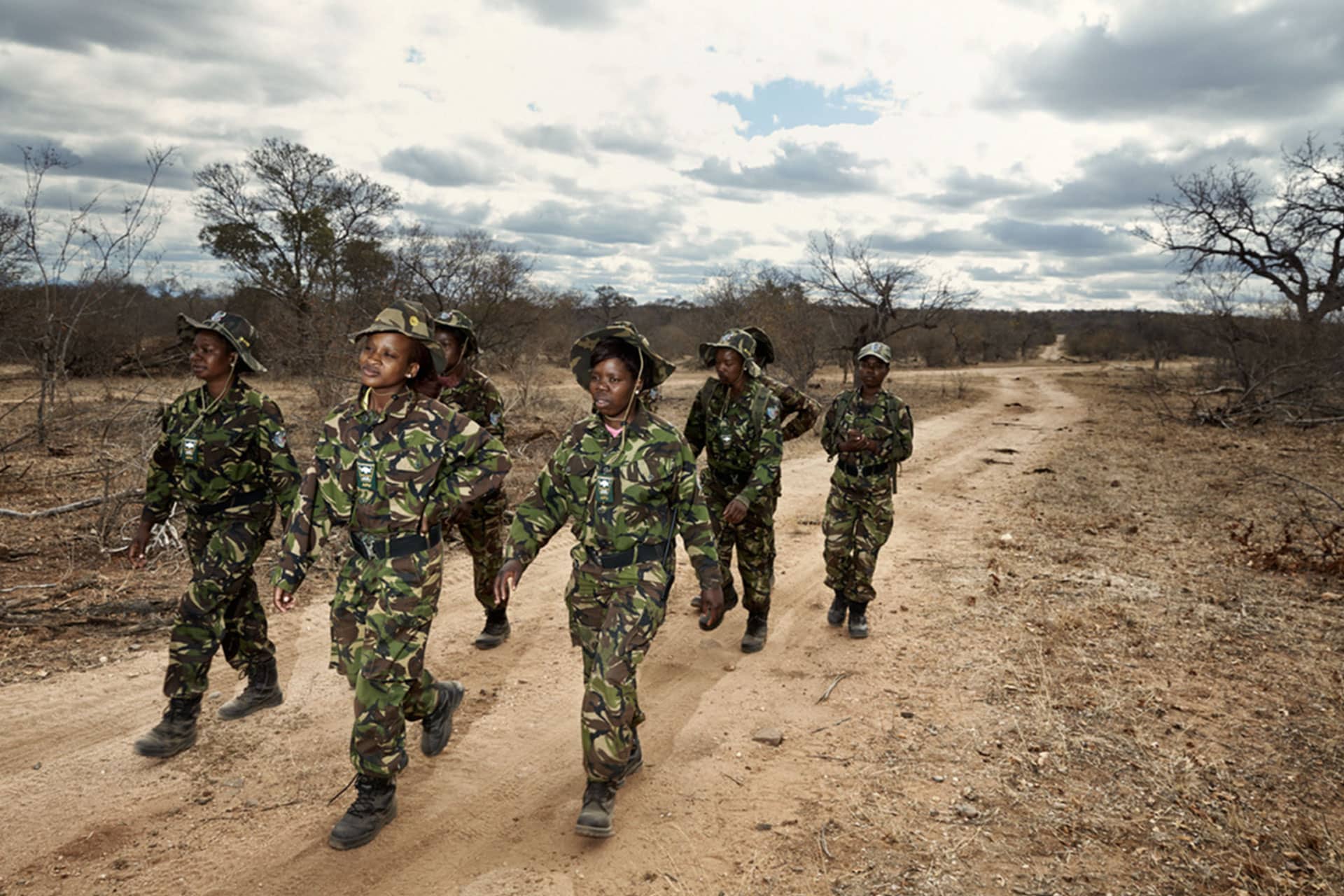
We started with a small team of 6, because there was so much resistance and doubt on the landscape. Once this first team achieved such success (snare poaching was at industrial level and they brought it down by 96% in the first 6 months) suddenly there was a huge demand for more Mambas. Since then, we have had 4 intakes and we now deploy 36 in total, over four jurisdictions.
Women, traditionally and culturally, are the primary care-givers in their communities. I wanted to invest in that role and strengthen their ethos to include wildlife. Then, by empowering the young women, the investment will be multi-generational. One day, these Mambas will be retired and looking after the children of their children. Chatting and sharing amazing stories of their lives as a Black Mamba. I reach three generations for the price of one! This is the legacy that will build an ethos of caring and change values around wildlife, perhaps building an environmental patriotism.
Giuliani, the former Mayor of New York City developed the philosophy of the “broken window syndrome”. We adapted this to combat wildlife crime. What this means for the Mambas is that no small crime can go unnoticed, not even illegal firewood harvesting, littering or speeding where there is wildlife.
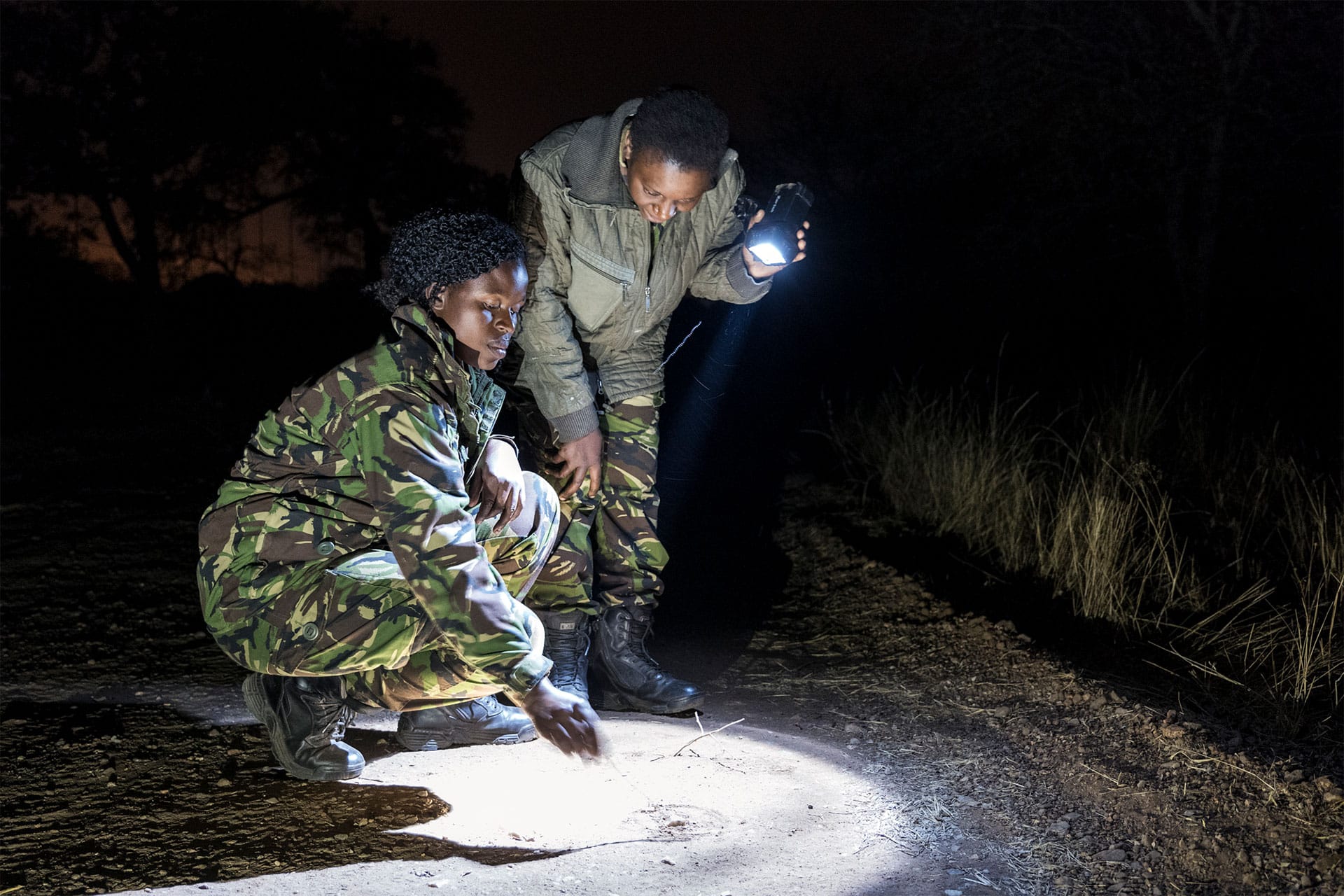
Before, the landscape was seen as a free-for-all. Now, any anti-social behaviour is addressed on the spot. Vehicles are searched upon entry and exit, contractors are visited, vandals and any antisocial behaviour on the landscape is addressed and the law enforced. Our theory is that if a landscape is seen to be lawless, then it will be a soft target for poachers. Mamba’s eyes and ears are everywhere. We are about crime prevention and early detection. Proactive.
My favourite of the programs! We quickly realised that to achieve our goals and reach multiple generations, we would have to get a footprint in the youth. Seven Mambas are dedicated to the Bush Babies program now and they deliver approved lesson plans to 1300 children, in 10 primary schools. The schools were in such a derelict condition that the Mambas had to first create a pleasant working environment for teaching, and then create a stimulating and engaging learning environment for the kids.
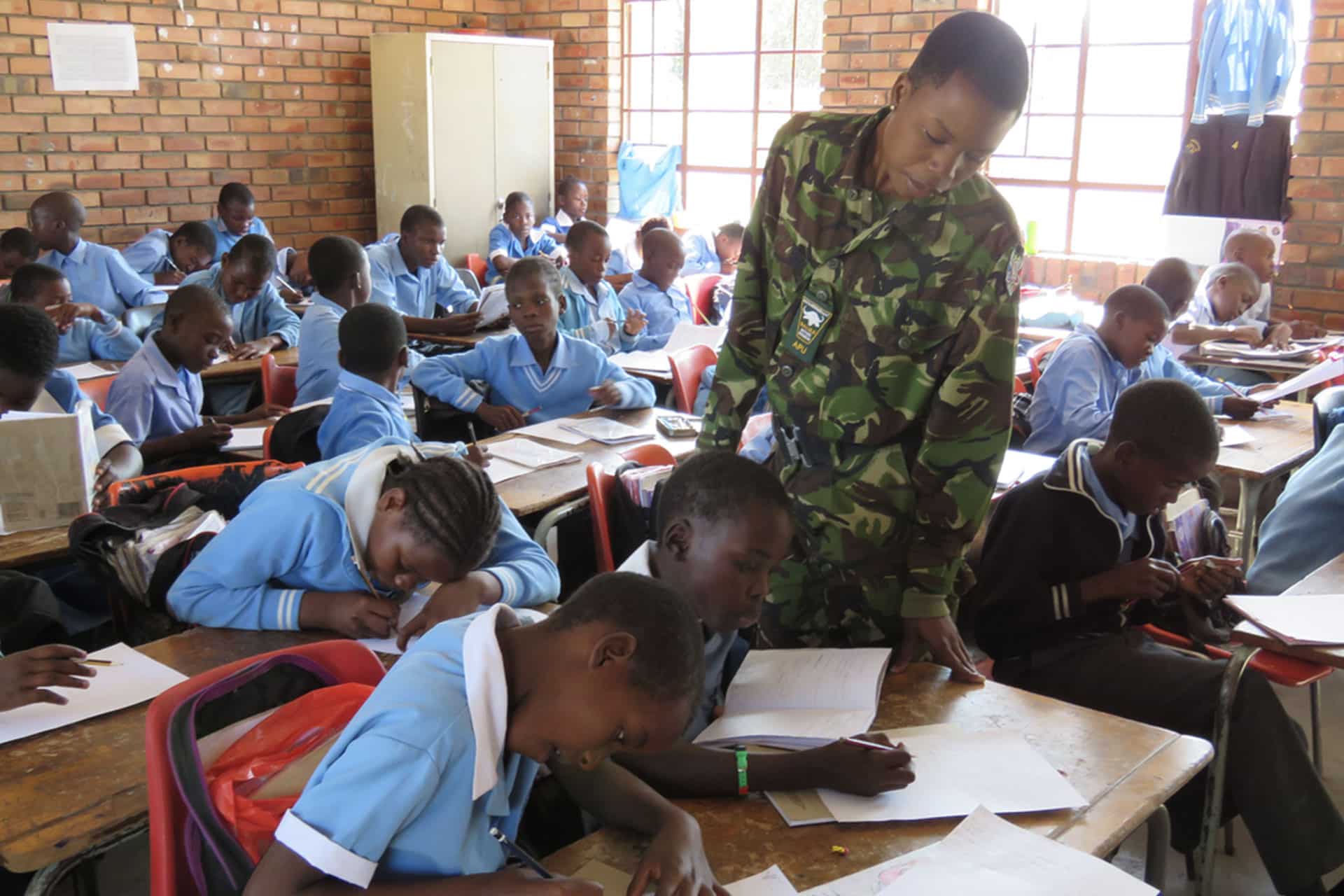
Each school now has a dedicated Bush Babies classroom with beautiful murals on the walls, proper desks, fans to keep it cool, teaching aids and all sorts! Covid forced us to build a Bush Babies Center in the tribal community, where the kids can still attend the classes despite the school closure. Here they interact with the wildlife and their personal environment at the rivers, etc. It is very important that the children in this program get to visit the Park and witness the wildlife regularly, and get a daily meal if they attend classes. The Bush Babies Mambas have planted vegetable gardens at the schools and the new center, and these feed many households, whilst teaching food security lessons. A hungry family is an easy target for crime syndicates and poaching will lure them into a social and moral decay.
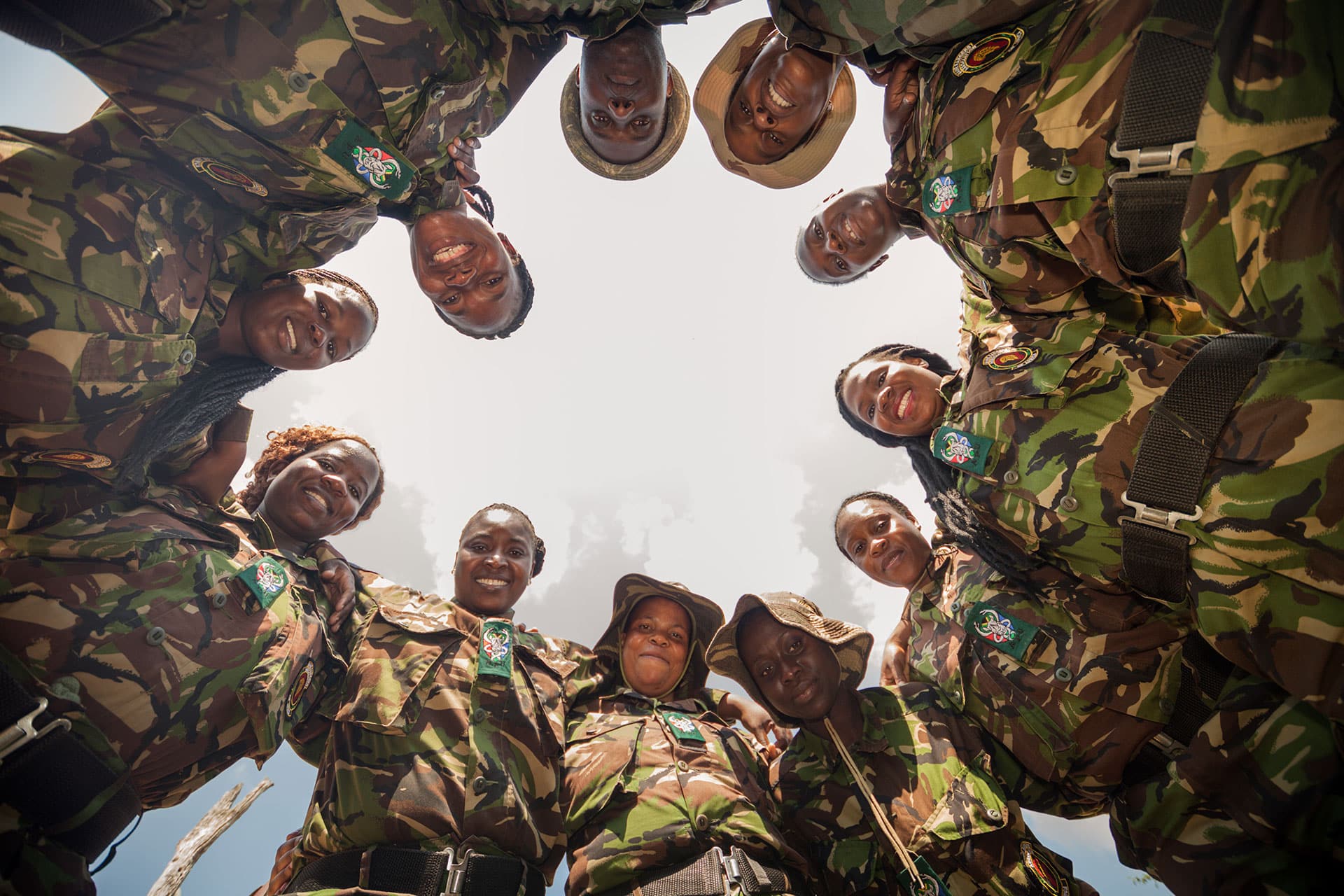
International tourism has given the wildlife its profile. Without the public profile, there would be no change of policy and no pressure on the decision-makers and politicians to take action. This is critical. Furthermore, tourism in the “non-consumptive” wildlife economy brings revenue to the region (not just the parks) and this provides incentives for the land and wildlife to be protected.
The park has grown substantially over the few years that I have been here, purely because owners of the land see the value in tourism. Conservation needs financial input, as well as the public awareness and profile that tourism brings. The industry has supported a massive job-market and up-skilling of the local populations, which in turn works towards our model of conservation. If the land was just seen as a wildlife preserve with no benefits to the local tribal populations, there would be no incentive for them to protect the wildlife and habitats. Tourism brings intrinsic values but equally importantly, tangible long-term benefits to the people living on the boundaries.
The role of tourism is the only sustainable aspect of the wildlife economy, and synergy between conservators and travel operators has never been more important.
Conservation efforts like the Black Mambas are doing incredible work in their fight against poaching, as well as long term community upliftment and empowerment. As advocates of responsible travel in all aspects, the team at Ker & Downey® Africa are proud to welcome the Black Mambas as legacy partners.
Chat to your LuxVenture® Designer today about how you can play your part in changing the face of conservation in South Africa and beyond, and leave a lasting legacy.
Ker & Downey® Africa is compliant with COVID-19 Industry Protocols.


Head office: 7 Bree Street, 6th Floor, Touchstone House, Cape Town, South Africa
+27 (0)21 201 2484
enquiries@ker-downeyafrica.com
United Kingdom: Sportsman Farm, St Michaels, Tenterden, Kent
Ker & Downey® Africa is compliant with COVID-19 Industry Protocols.